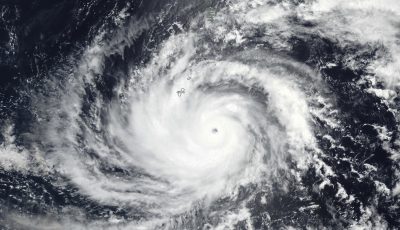The folly of making an enemy out of Russia
I cannot help but see that there are linkages between what has been happening in Europe and what has been taking place in the Western Pacific and the broader Asia-Pacific region.
As stretched as it may sound, America’s policy towards Ukraine, for example, has helped to create the conditions that are generating more distrust between the United States and Russia, to the benefit of the Chinese government and Chinese military.
Let me illustrate the point by referencing U.S. policy towardUkraine.
Our policy towards Ukraine—that of bringing the country into NATO’s orbit of influence and favor—is ineffective and distractive and U.S. actions have in part created the incentives for the Russian military to continue to conduct overflights in international airspace near the island of Guam and the Northern Marianas as well as overflights near Japan and Alaska that demonstrate Russia’s military reach into a region of the world that has been an area of American military dominance for decades.
Ukraine is a core national interest of Russia because it borders Russia.
Ukraine is not a core national interest of the United States nor should it be.
What is needed, is a political settlement on the issue of Ukraine negotiated between the West and Russia because our current policy of supporting pro-western forces in Ukraine by providing old military equipment and American military advisory resources will not produce a strategic outcome favorable to the United States.
We cannot somehow neutralize forces loyal to Moscow through arms deliveries nor should we contemplate the continuation of such a policy because American national resources are already over-stretched and now is not the time to pick a bigger fight with Moscow.
This aggressive behavior by NATO, the EU and the United States will continue to hurt the U.S.’ ability to garner assistance from Russia because it will complicate how we are able to apply political pressure on the Chinese government to dial down its military expansionist desires in the Asia-Pacific, to how we manage the crisis in Syria while we seek ways to better mitigate divergent U.S. Russian interests tied to the Assad regime and its ability or inability to fight against ISIL.
Our nation seems to be lacking clarity in its global strategic outlook beyond wanting to be the world’s policeman. Use of American military power worldwide cannot produce or sustain U.S. primacy and influence in every nook and cranny throughout the globe over time.
American resources are limited and as it stands, the cost to American taxpayers of underwriting the security umbrella in the Asia-Pacific region alone is cost prohibitive and, for islanders such as myself, stands to bring about unnecessary permanent harm and stress to our island chain’s total environment and subsequent injury to our Chamorro culture because of the Pentagon’s desire for forward basing and forward deployment of military assets and supplies.
My worry is that if the U.S. does not change its policy toward Ukraine and we continue to not mend the gaps with Russia on the Syrian debacle, the Russian military will continue to be incentivized to fly into and throughout the Asia-Pacific region to challenge American military primacy in the area that includes conducting additional flights near Guam and the Northern Mariana Islands.
Rick Perez
Hanover, NH



























